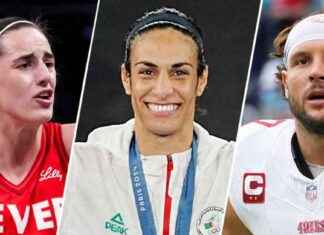In Senegal, it’s time to take stock and respond to the protests in early June. The lull observed in recent days should allow the country to regain serenity so that answers can be given to the many questions that are emerging, starting with those concerning the armed thugs seen alongside the security forces.
At the national level, the government said it would try to respond to controversies sparked by the release of videos showing armed men in civilian clothes attacking protesters.
Internationally, the UN has said it is “deeply concerned” by developments in the human rights situation in the country and sees “a dark precedent” in the use of firearms by security forces against demonstrators accused by Dakar of having engaged in “terrorism” in early June. “We note that the authorities have opened investigations and we call on them to ensure that these are prompt, independent and thorough, and that they bring anyone found responsible for the use of unnecessary or disproportionate force to account account of his actions, regardless of their status and political affiliation,” said the Office of the High Commissioner for Human Rights in a press release.
Senegal was plagued from June 1 to 3 by its worst troubles in years after the sentencing of opponent Ousmane Sonko to two years in prison in a sex scandal. The announcement of the sentence sparked violence that left 16 dead officially, but 23 according to Amnesty International.
For its part, the High Commission evokes “at least” 16 people killed, 350 injured and more than 500 arrested during the 3 days of demonstrations. “We are also concerned about the continued restrictions on freedom of expression and peaceful assembly following the protests,” the Office said.
He refers in particular to the case of Walfadjiri TV, a private channel which covered the protests live and which was suspended on June 1 “without clear legal justification and has still not been reinstated to this day”.
The UN also recalls that restrictions on internet access, which had been justified by the government to end “the spread of hateful and subversive messages”, “must be based on unambiguous and publicly accessible law”. .
The Senegalese Ministry of Foreign Affairs replied in a statement that the events of early June were “acts that have absolutely nothing to do with the exercise of the rights of expression and demonstration”. “We have instead witnessed extremely serious attacks against the State, the Republic and its institutions and the Senegalese nation through human violence, the ransacking of public and private property and cyberattacks against strategic government sites and public services. vital,” the statement said.
For Dakar, “the objective (of this violence) was undoubtedly to sow terror and bring our country to a standstill and, in the face of this terrorism, it is necessary to reaffirm the imperative need to protect our Republic”, according to this press release.
On June 8, the government presented the diplomatic corps in Dakar with a booklet containing its version of events. In a separate press release, this Tuesday, June 13, the Ministry of Tourism wanted to “bring to the attention” in particular “visitors and foreigners residing in Senegal the normal resumption of tourist activities” in the country. “Senegal remains a safe tourist destination,” adds the Ministry of Tourism. The local press had reported cancellations of stays and hasty departures of tourists.
As for the Senegalese employers, he regretted the cost of the destruction and damages for the Senegalese companies: “It is incomprehensible that the company continues to be targeted, ransacked, looted […] because of political disputes”, declared the president of the National Council of Employers, Baïdy Agne, who mentions “hundreds of billions” of CFA francs in losses. Banks, shops and gas stations were mainly targeted.
In any case, Senegalese employers are concerned about the repercussions on the country’s attractiveness and foreign investment, eight months before the presidential election, scheduled for February 2024. Election for which President Macky Sall, elected in 2012 and re-elected in 2019 , maintains the vagueness about his desire to run for a third term.






